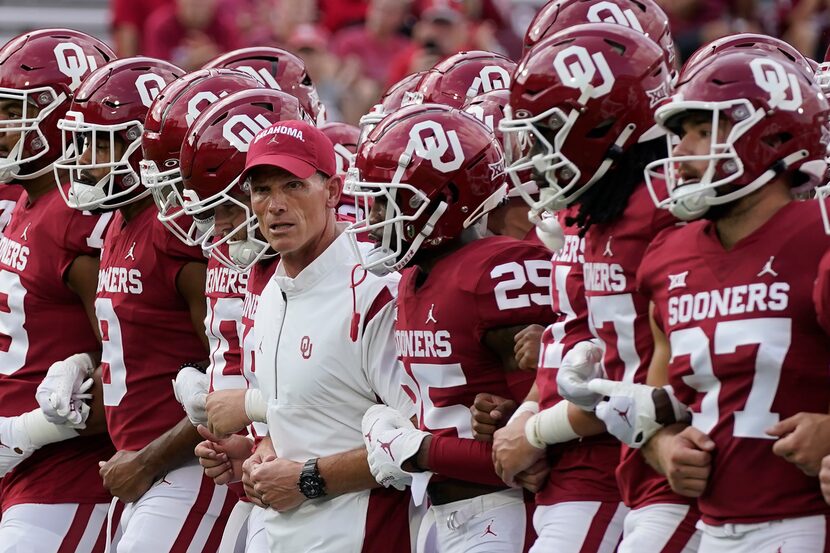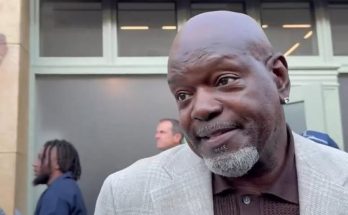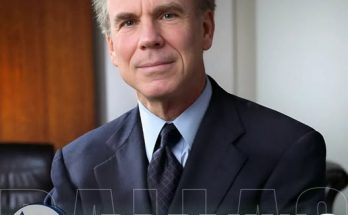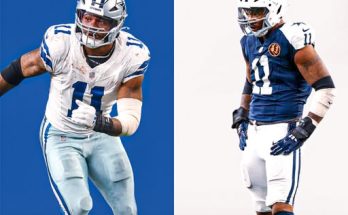When the announcement came that Brent Venables, head coach of the Oklahoma Sooners, would take over the defensive playcalling duties for the 2025 season, it sparked immediate reactions across the college football landscape. For some, it was a sign of renewed focus and commitment to Oklahoma’s storied defensive identity. For others, it raised questions about whether Venables could balance the demands of head coaching with the intense responsibility of calling defensive plays, particularly after a tumultuous start to his tenure in Norman. Regardless of the initial reaction, the decision to have Venables step into a more hands-on role with the defense is emblematic of the broader pressure to return Oklahoma to championship contention.
While Brent Venables has long been recognized as one of the premier defensive minds in college football, particularly during his time as the defensive coordinator at Clemson, many were skeptical of how this change would unfold at Oklahoma. This article delves into the reasons for the skepticism, examining the challenges Venables faces in reclaiming the defensive identity of the Sooners, the history of his coaching journey, and the implications of this significant move as Oklahoma enters the 2025 season.
Brent Venables’ Background: A Defensive Mastermind
Before becoming the head coach at Oklahoma, Brent Venables was revered as one of the top defensive coordinators in the nation. His tenure at Clemson was nothing short of exceptional. As the defensive coordinator from 2012 to 2021, Venables orchestrated some of the most dominant defenses in college football, earning a reputation for his ability to design aggressive, disciplined, and opportunistic defensive schemes. Under Venables, Clemson’s defense was consistently among the nation’s best, particularly in areas like pass rush, third-down efficiency, and turnovers.
Venables’ reputation as a defensive guru was solidified when Clemson’s defense played a key role in the Tigers winning two national championships in 2016 and 2018. Venables’ defenses at Clemson were known for their ability to stifle opposing offenses with relentless pressure, disciplined coverage, and excellent linebacker play. His coaching acumen, attention to detail, and ability to develop defensive players made him one of the most sought-after defensive minds in the game.
When Venables was hired as the head coach at Oklahoma in 2022, many in the college football world were excited by the prospect of him bringing that same defensive intensity and success to a program with a storied history. However, his tenure as head coach in his first two seasons has been marked by growing pains, particularly on the defensive side of the ball. This has led to the eventual decision for Venables to step in and call the defensive plays in 2025.
The Struggles of Oklahoma’s Defense Under Venables
Despite Venables’ immense success as a coordinator, his time as head coach at Oklahoma has been a bit more challenging. The Sooners, who have long been known for their potent offensive attacks, have struggled to meet the high expectations set on defense. Venables’ first two seasons as head coach have shown flashes of promise, but his defense has often been inconsistent and unable to fully match the standard he set for himself at Clemson.
In 2022, the Sooners’ defense ranked just 68th in the nation in total defense, which was a far cry from the elite status Venables had previously commanded. The defense struggled with missed tackles, blown coverages, and a lack of consistency in pass rush. Though there were improvements over the course of the season, Oklahoma’s defensive weaknesses were apparent during key matchups, such as losses to Texas, Kansas State, and Baylor. The Sooners’ defense failed to get off the field on third downs and allowed big plays at critical moments. These issues were exacerbated by struggles with depth, particularly in the secondary and at linebacker.
The 2023 season showed more promise for Venables’ defense. The Sooners’ defense began to show signs of improvement in certain areas, particularly against the run, but the defensive line, linebackers, and secondary still faced significant challenges. While there were moments of brilliance, such as turnovers and strong individual performances, the defense’s inconsistency continued to hinder Oklahoma’s chances at a Big 12 title and beyond. The inability to play complementary football with the offense—balancing explosive scoring with timely defensive stops—remained a problem for Venables and the team.
Venables Taking Over Playcalling: A Bold Decision
Given the mixed results on defense in Venables’ first two years, the announcement that he would take over playcalling duties in 2025 was met with a mix of excitement and skepticism. There were several key reasons why many observers were uncertain about this decision, some of which stemmed from the challenges of head coaching in modern college football, while others revolved around the complexity of overseeing both the defense and the overall operations of the team.
Managing the Demands of Head Coaching
One of the primary concerns about Venables taking over playcalling responsibilities is the sheer workload involved in managing both the head coaching duties and the defense. As the head coach of a premier program like Oklahoma, Venables is tasked with overseeing everything from recruiting to special teams to game-day management. The responsibilities are vast, and it’s difficult to devote the same level of attention to the defense that a dedicated coordinator might.
The role of the head coach has evolved significantly in recent years, with many programs opting for a more hands-off approach when it comes to specific position groups and playcalling. Instead of calling plays on game day, many head coaches choose to delegate those duties to coordinators, allowing them to focus on broader team management, decision-making, and leadership. In a sport that is increasingly complex and fast-paced, it can be a daunting challenge for a head coach to remain effective when they are responsible for both high-level strategy and specific game-day decisions.
While Venables has experience as a coordinator, the question remains whether he can balance both roles effectively. College football is a relentless sport, and for a team like Oklahoma, which has championship aspirations, every decision matters. Venables’ ability to manage the expectations of being a head coach while also calling defensive plays in the heat of the moment is an ongoing challenge.
Defensive Playcalling in the Modern Game
Another concern with Venables taking over defensive playcalling is the increasing complexity and speed of modern college football offenses. As teams continue to evolve with uptempo offenses, new spread concepts, and complex passing schemes, defensive playcalling has become more nuanced than ever before. While Venables has an excellent understanding of defensive football, there is concern about whether he can stay ahead of the offensive trends and continue to put together defensive game plans that can consistently shut down high-powered offenses.
The rise of up-tempo offenses, such as those run by teams like Oklahoma State and Kansas, puts immense pressure on defensive coordinators to not only call plays but also adjust quickly to in-game situations. Defenses now must be more versatile, incorporating schemes that can handle the run, the pass, and the option, all in a span of a few seconds. A head coach who is heavily involved in the day-to-day operations of a team may struggle to keep pace with the rapid-fire decision-making required for modern defensive playcalling.
There are also questions surrounding Venables’ ability to adapt his defensive schemes to counteract some of the new-age offensive strategies. His base defense, which has been a hallmark of his success, may need further refinement to be fully effective against today’s most innovative offenses. His ability to keep his defense flexible and unpredictable will be key in determining how successful he can be in the playcalling role.
Skepticism from Players and Coaches
While Venables is widely respected for his defensive knowledge, there has been some internal skepticism about how the transition will affect the rest of the coaching staff and the players themselves. There is a concern among some players that the head coach’s increased involvement in the defense could cause tension within the coaching staff, particularly if it undermines the authority of current defensive assistants. Venables has long been known for his hands-on approach to coaching, but some have questioned whether it might hinder the development of assistant coaches and whether the defense will have enough flexibility to thrive with a head coach pulling the strings.
Additionally, there are questions regarding how well the players will adapt to the shift in leadership. Defensive players have become accustomed to certain coaches having direct influence over their positions. With Venables taking a more direct role in playcalling, there could be challenges in terms of adjusting to a new voice in the defensive huddle.
Why Venables’ Decision Could Work
Despite the skepticism surrounding Venables’ decision to take over playcalling duties, there are several reasons why this move could ultimately be successful. First and foremost, Venables has proven in the past that he is an exceptional defensive coach. His experience as a coordinator and his ability to adapt and learn from each season make him a rare commodity in the college football world. He has a deep understanding of defensive football and a proven track record of turning defenses into championship-caliber units.
Moreover, Venables’ leadership style is one that thrives on accountability and responsibility. By taking ownership of the defense, he is signaling to his players that he is fully invested in their success and that they can expect a high level of preparation and commitment. This could instill a sense of urgency and motivation within the defensive unit, potentially spurring them to rise to the occasion and perform at a higher level.
Venables’ familiarity with the Oklahoma program is another advantage. He understands the rich tradition of Sooners football and knows what is expected of the defense at a program of this caliber. His connection to the Oklahoma community and the players will help him maintain a strong, cohesive team environment while also giving him the flexibility to make decisions in real-time on game day.
A High-Risk, High-Reward Move
Brent Venables’ decision to take over defensive playcalling for the Oklahoma Sooners in 2025 is certainly a bold one. While skepticism surrounds his ability to balance head coaching duties with the demands of calling plays, Venables’ proven track record as a defensive mastermind and his deep connection to the Oklahoma program give him a unique advantage. Whether this decision ultimately proves to be a success or a struggle will depend on how well Venables adapts to the demands of his expanded role and how effectively he can guide his defense through the challenges of modern college football.
For the Sooners, the stakes are high. After a couple of seasons filled with defensive inconsistencies, Venables’ ability to lead Oklahoma back to the top of the Big 12—and potentially to a national championship—may very well depend on the success of this pivotal move. The 2025 season is shaping up to be a make-or-break year for both Venables and the Sooners, and how well the defensive playcalling shift works could determine whether Oklahoma returns to national prominence or continues to face struggles.



